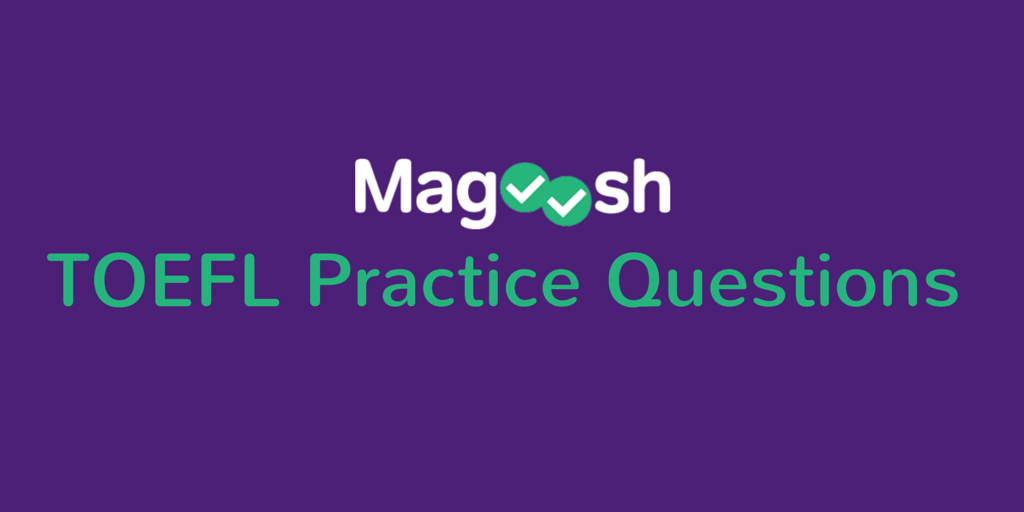So you took the TOEFL, and you’re not happy with your score. What should you do now? How important is your TOEFL score, really? Is it important to retake the TOEFL and get a higher score?
These are good questions, but the answers are different for individual people. Maybe you scored a 96, but you were hoping for over 100. Or maybe you scored a 68, and you don’t know what you need. Those are very different situations. But here’s the good news: it’s not too hard to figure this out.
Find Your Target Score
The first thing to do, if you haven’t done it already, is to research what your target score should be. Conveniently, minimum TOEFL scores are often posted on university programs’ websites. Unlike other admissions tests–such as the SAT, GRE, or GMAT–the TOEFL gives information to schools that isn’t in other parts of your application. Whereas your math abilities might be given by both your GRE score and your grades in classes, your ability to communicate in English is only directly measured by your TOEFL score. So while a program might accept a student with a low GRE (or SAT, or whatever) score because the other parts of the application are good, if your English level isn’t high enough, then there is little else to consider.
My main point is this: you can usually find the scores you need for the programs you want by researching on their websites. If you can’t find a minimum TOEFL score, then if you email the admissions office, they will probably help to answer the question.
Once you know your target score, you’re making progress.
Below the Target Score
If you didn’t reach your target, but the program you’re interested in says that score is the minimum, then there is no question; you have to retake the TOEFL.
If the program doesn’t say it’s a requirement, only a preference, then you might consider 5 points under the preference to be the limit. If the school says they prefer 80 or over, and you got 74, you should retake the test. If you got a 78, then it’s probably a good idea to focus on the other parts of your application.
You should also consider your deadline and what went wrong the first time. If you must apply to your program within a month, and you already studied a lot for the TOEFL before taking it, then you will probably not make a big improvement so quickly. There’s no point in retaking the TOEFL and getting the same score again. On the other hand, if you didn’t really study the first time, and the format and strategies of the test were new to you, then one month might be enough time to make the improvement you need–but you’ll have to study for it! It’s possible to make a 5-10 point difference from simply learning how to take the test, rather than by raising your English level very much.
If you have longer than a month to make an improvement, but you already know the test very well, it really depends on how much you need to improve. Building English skills requires time and practice–even more than learning to take the test requires. How much time and how much practice varies from person to person, of course. But in general, if you need to make a large improvement and you already know the test format well, then you will probably need anywhere from a month to a year (or more) to bring up your English level. If this is the case, remember to focus on not only grammar. Speak and write in English as much as possible.
At the Target Score or Above
Unlike the other admissions tests, there’s no real reason to retake TOEFL just to get an extremely high score. If the school wants 70 or above and you get a 70, then you’re fine. You don’t need a 90–it won’t really help you. The other parts of your application are more important!
So, Should I Retake the TOEFL?
Hopefully after reading the above, that’s a question you’ll have a little bit easier of a time answering. Just try to make your decision an informed one!





